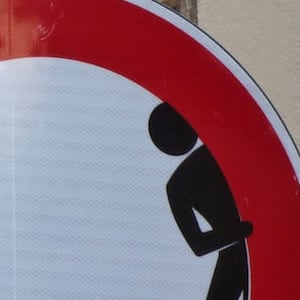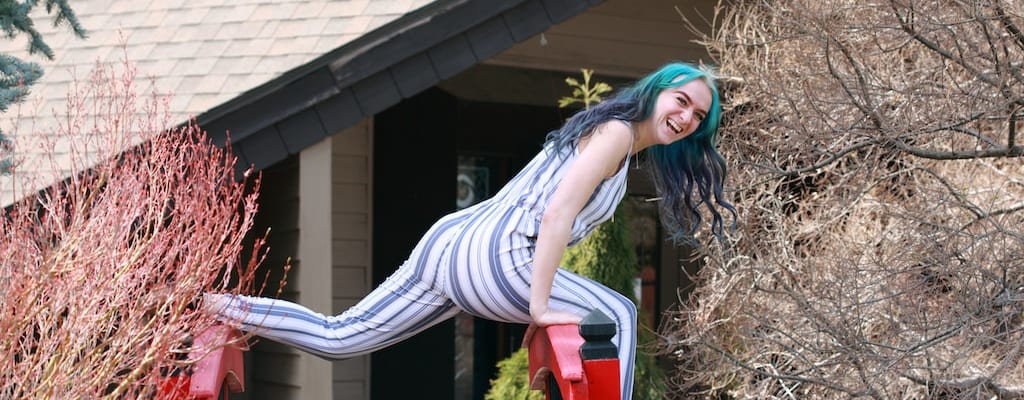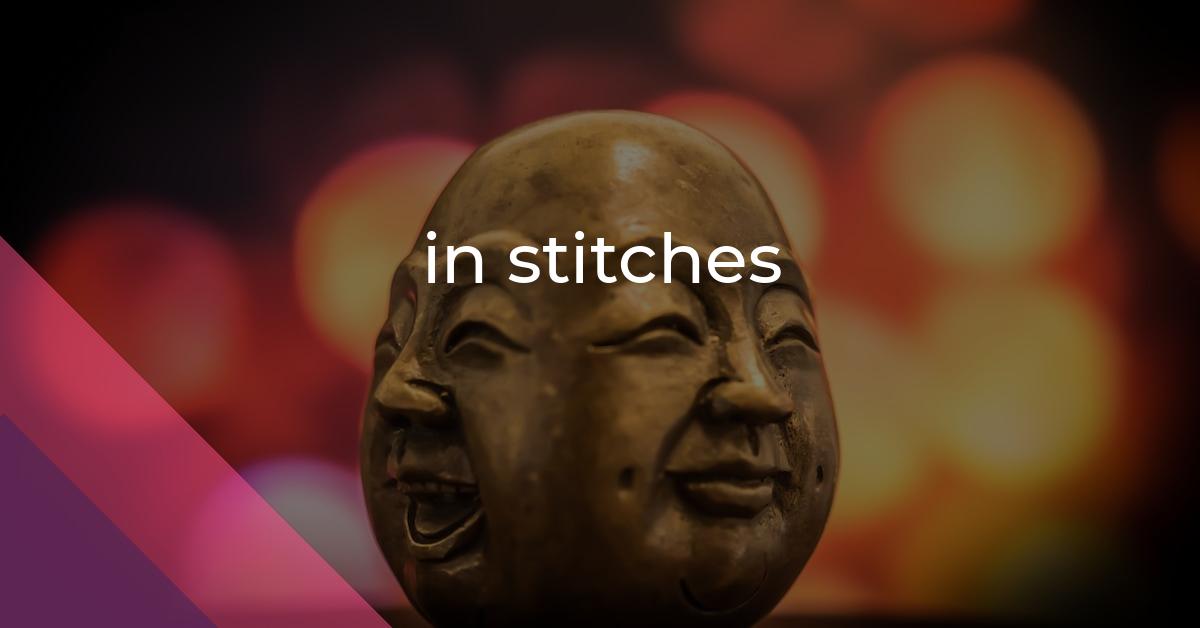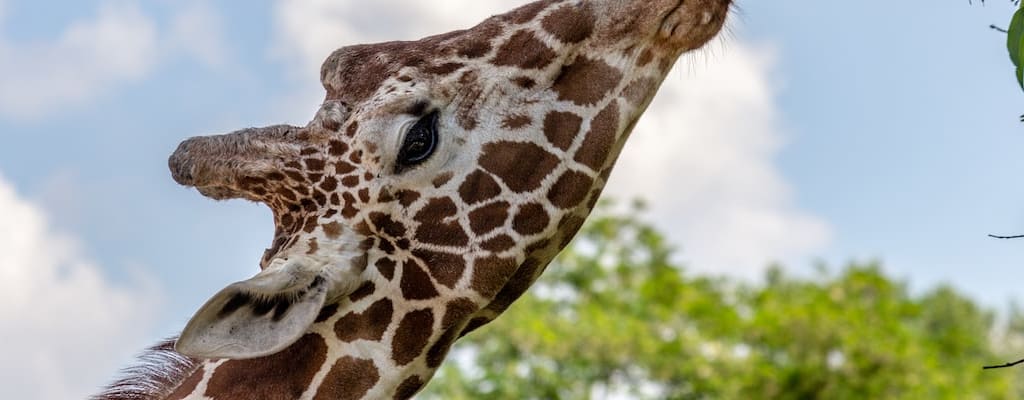in stitches: Idiom Meaning and Origin
What does ‘in stitches’ mean?
When someone is "in stitches," it means they are uncontrollably laughing or finding something extremely amusing.

Idiom Explorer
The idiom "split one's sides" means to laugh uncontrollably or extremely hard.
The idiom "laugh one's head off" means to laugh uncontrollably and excessively.
An "inside joke" is a humorous reference or remark that is understood only by a specific group of people who know the context behind it.
The idiom "have a laugh" means to find something amusing or entertaining and to enjoy a good laugh or joke.
The idiom "go bananas" means to become extremely excited, agitated, or irrational. It is often used to describe someone losing control of their emotions or behaving in a wild and unpredictable manner.
The idiom "get one's shorts in a knot" means to become overly upset or anxious about something, often overreacting to a minor issue.
The idiom "get one's panties in a pretzel" means to become excessively upset, irritated, or overreact to a situation. It implies an exaggerated emotional response and is often used to describe someone who is easily angered or frustrated.
The idiom "get one's knickers in a knot" means to become overly upset, anxious, or stressed about something. It implies an exaggerated or unnecessary reaction to a situation, often due to overthinking or exaggeration of the problem.
The idiom "funny stuff" refers to something that is amusing, quirky, or strange. It is often used to describe situations, actions, or remarks that are humorous or out of the ordinary.
Hidden Chuckles
The idiom "in stitches" is commonly used to describe a situation in which someone bursts out laughing so uncontrollably that they feel physical pain. This concept of intense laughter causing discomfort or pain can be traced back to the early medical practice of stitching wounds. The act of suturing involved using a needle and thread to sew together the edges of a wound, and it could be a painful process. This connection between pain and stitches likely led to the idiom's association with laughter.
In addition to its ties to medical procedures, the idiom "in stitches" is also linked to the world of sewing and textile work. Stitches are an essential part of sewing, used to join fabric pieces together or create intricate patterns. The act of sewing requires precision and concentration, but it can also cause someone to crack up and be a source of pleasure and satisfaction, often causing them to split their sides.
The idiom "in stitches" is widely understood and used in both formal and informal contexts. It is frequently employed in everyday conversations, as well as in various forms of media, such as books, movies, and television shows. This widespread usage has solidified its position as a common phrase in the English language. People know the power of a good joke or funny situation to put them in stitches, falling around, and laughing their heads off.
Overall, the idiom "in stitches" has its roots in both the medical and sewing worlds. It reflects the idea of intense laughter causing physical pain, reminiscent of the discomfort associated with medical stitches. It also draws on the joy and satisfaction derived from sewing and the use of stitches in fabric work. This idiom has become a part of everyday language, effectively conveying the concept of uncontrollable laughter. While the exact origins remain uncertain, the enduring popularity and usage of this idiom highlight its significance in contemporary English.
Example usage
Examples: 1. The comedian had the entire audience in stitches with his hilarious jokes. 2. When Sarah fell down the stairs, her friends couldn't help but laugh and were soon in stitches. 3. The funny video on social media had me in stitches, I couldn't stop laughing. Analysis:
The idiom "in stitches" is often used to describe a state of uncontrollable laughter or extreme amusement. It implies that someone is laughing so hard that it feels like their sides are splitting or tearing. The idiom is commonly used in informal contexts and is usually associated with humorous situations or jokes.
More "Humor" idioms



